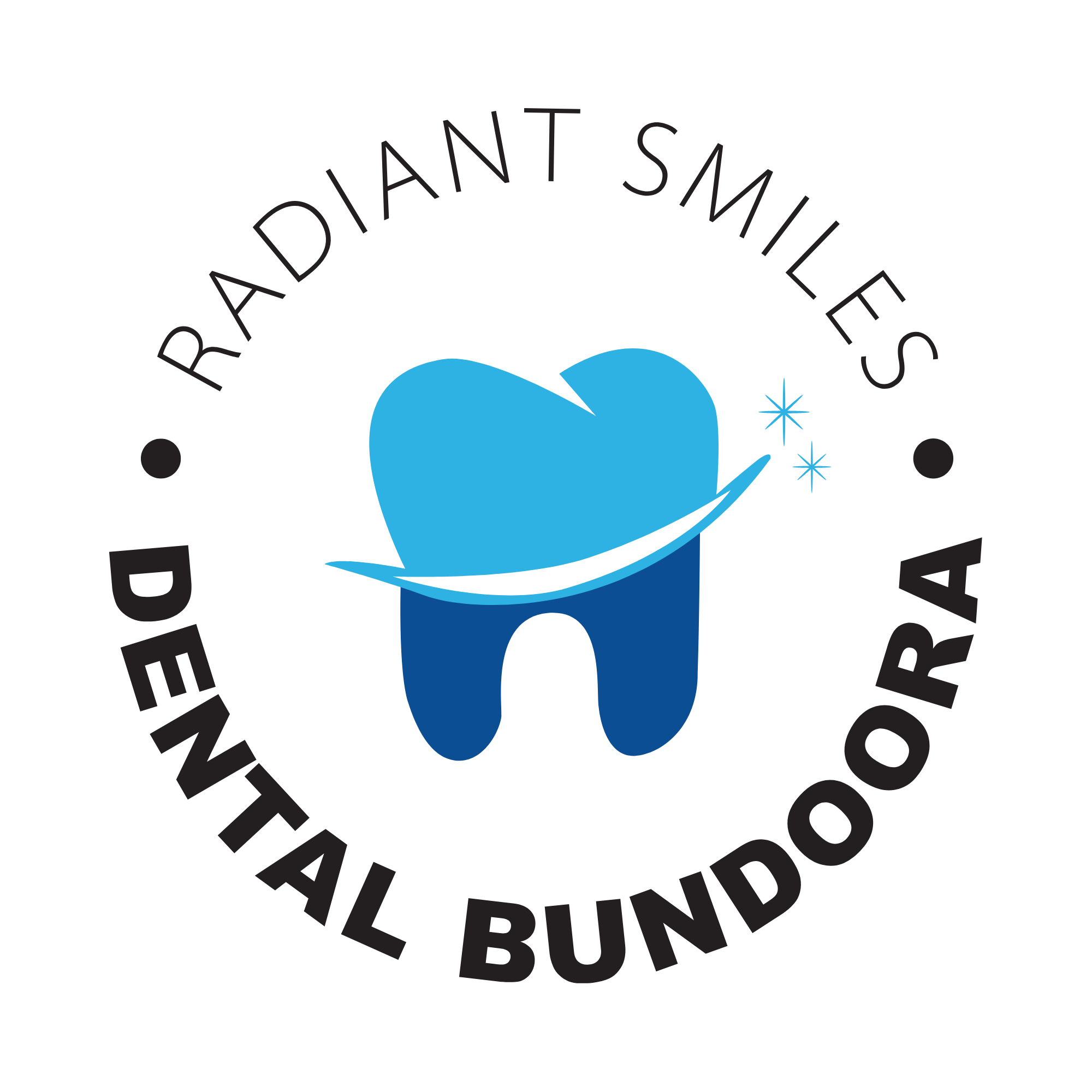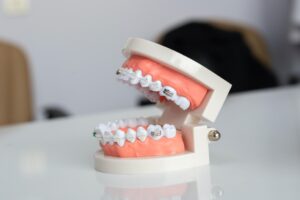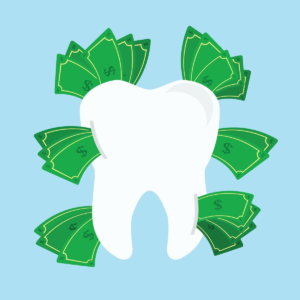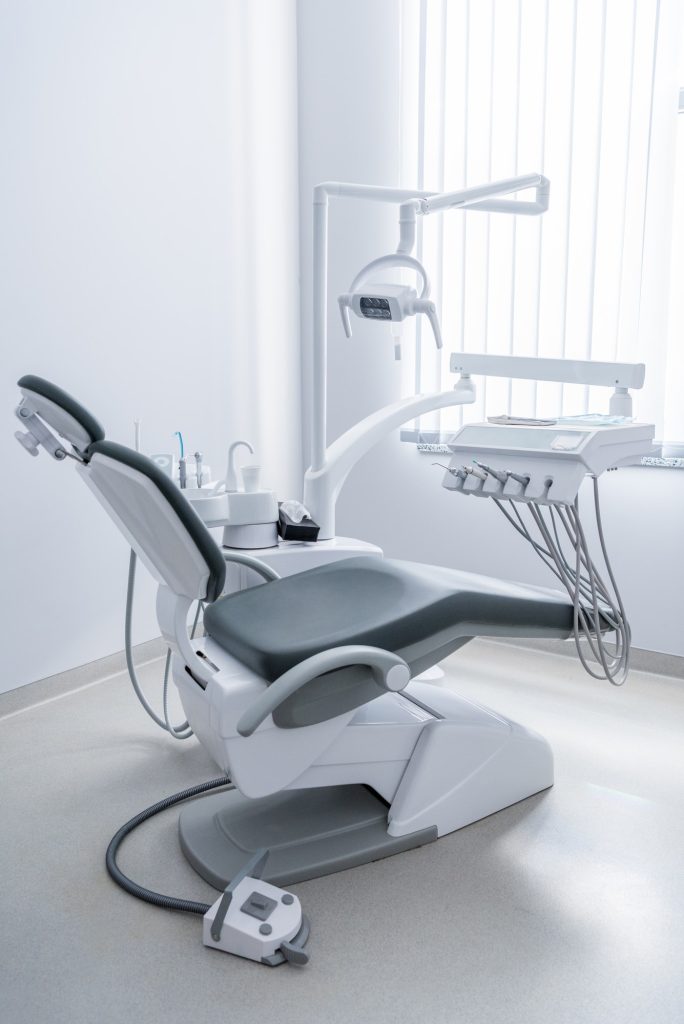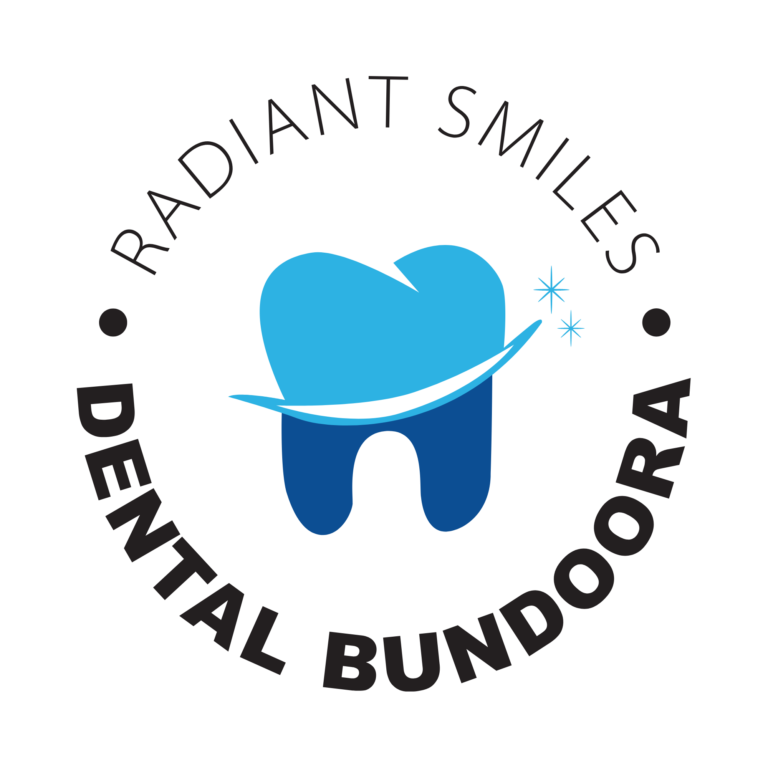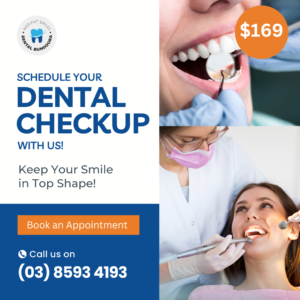[et_pb_section fb_built=”1″ _builder_version=”4.17.4″ _module_preset=”default” global_colors_info=”{}”][et_pb_row _builder_version=”4.17.4″ _module_preset=”default” global_colors_info=”{}”][et_pb_column type=”4_4″ _builder_version=”4.17.4″ _module_preset=”default” global_colors_info=”{}”][et_pb_text _builder_version=”4.17.4″ _module_preset=”default” global_colors_info=”{}”]
Dental emergencies can range from cracked teeth to a completely knocked-out tooth. According to the Australian Bureau of Statistics, 47.9% of the Australian population saw a dentist for a dental emergency in the preceding year.
If left untreated, these emergencies can lead to severe complications, such as infection and damage to the surrounding teeth. So, it’s essential to know what a dental emergency is and what to do if you or someone you know experiences a dental emergency.
What is a Dental Emergency?
A dental emergency is any dental issue that requires immediate attention from an emergency dentist to preserve the health of your teeth and gums.
Some common dental emergencies include:
Persistent Bleeding
Bleeding that persists for more than 30 minutes is considered a dental emergency. If you are experiencing persistent bleeding, it is important to seek dental care as soon as possible. Your dentist may need to pack the injury with a hemostatic agent to help the blood clot before they can treat the source of the bleeding.
Persistent bleeding can be caused by various factors, including dental decay, gum disease, or facial trauma. Treatment varies depending on the cause of the bleeding but may include medication, surgery, or other dental procedures like a crown or a root canal.
Severe Swelling
Severe swelling is a dental emergency caused by an overactive immune response to infection or trauma. Call your emergency dentist immediately if you have severe neck, jaw, or face swelling.
In the meantime, apply a cold compress to the area to help reduce the inflammation and avoid chewing on the side of your mouth that is affected by the swelling.
Broken or Fractured Teeth
A broken or fractured tooth can be painful and leaves your tooth vulnerable to decay and bacterial infection. You should seek immediate treatment from an emergency dentist if you damage a tooth.
If the fracture is minor, your dentist may be able to repair it using dental bonding or a filling. However, if the fracture is more severe, for example, if a large piece of your tooth has chipped or broken off, a crown, bridge, or root canal may be necessary.
Avulsed Teeth
In most cases, the chances of saving an avulsed tooth are better if treatment begins within 30 minutes of being knocked out. If possible, place the tooth back in its socket as soon as possible and hold it in place using a damp cloth and clenching your jaw closed.
If it is impossible to put the tooth back into its socket, keep it moist at all times by placing it in a sterile container filled with milk or salt water. Do not attempt to clean the tooth, and always hold the tooth by the crown, not the root, until you can get to your emergency dentist and get emergency dental care.
Damaged Restorations
Loose or damaged restorations can lead to further damage and even infection if left untreated. For example, a broken crown may need to be replaced by your dentist to restore its functionality and prevent future complications.
What is a Dental Emergency: Emergency Dental Treatments
At Radiant Smiles Dental Group, we offer a variety of emergency dental care treatments that can help address any urgent oral health issues you may be experiencing. Some common emergency services we offer include:
Dental Bonding
Dental bonding is a quick and effective way to repair minor fractures, chips, or other issues with your teeth. This dental treatment involves using a special resin that can be moulded and shaped to fit your teeth perfectly.
Dental Fillings
Dental fillings are used to treat tooth decay by filling in cavities and repairing damaged areas on the surface of your teeth. After cleaning damaged dental tissue, the composite resin is applied in layers to the tooth and hardened with a curing light.
Dental Crowns
Crowns are used to repair broken or damaged teeth by covering the entire tooth surface. After removing a small amount of enamel, the dentist takes an impression to create a custom crown matched to your tooth colour. While you wait for the lab to fabricate the tooth, your dentist will fit you for a temporary crown to protect your tooth.
 Root Canal Therapy
Root Canal Therapy
Root canal therapy is used for teeth affected by deep decay or a dental abscess. The dentist opens the crown and removes the infected tissue from the pulp chamber.
After sterilising and smoothing the root canals, they’re filled with gutta-percha and a dental filling. You may also need a dental crown, depending on how much remaining tooth structure you have left.
What is a Dental Emergency: How to Manage Dental Emergency Symptoms at Home?
Dental emergencies usually require urgent treatment from a qualified emergency dentist. However, there are a few things you can do at home to alleviate discomfort while you wait for your appointment:
- If you have a toothache, rinse your mouth with warm water and floss the affected tooth to remove food particles stuck in your teeth.
- You can also take over-the-counter pain relievers such as ibuprofen to reduce inflammation.
- If you have a broken or chipped tooth, rinse your mouth with saline solution and apply an ice pack to the outside of your face to reduce swelling.
- If you have lost a filling or crown, apply a small amount of dental wax or sugarless gum to the area to protect the tooth.
- If you are experiencing bleeding from the gums or lip, apply firm pressure with a clean cloth.
Get Emergency Dental Care at Radiant Smiles Dental Group
At Radiant Smiles Dental Group, we understand that dental emergencies can happen anytime. That’s why we offer emergency dental care services to help you get the treatment you need as quickly as possible.
We understand that dealing with a dental emergency can be stressful, so we ensure you’re comfortable. If you’re experiencing a dental emergency, contact us today at (03) 9000 0537.
Note: Any surgical or invasive procedure carries risks. Before proceeding, you should seek a second opinion from an appropriately qualified health practitioner.
References
Pain management for dentists: the role of ibuprofen
https://www.ncbi.nlm.nih.gov/pmc/articles/PMC3414241/
Cold Therapy (Cryotherapy) for Pain Management
https://www.urmc.rochester.edu/encyclopedia/content.aspx?contenttypeid=134&contentid=95
Dental Restoration
https://www.sciencedirect.com/topics/medicine-and-dentistry/dental-restoration
Patient Experiences in Australia: Summary of Findings
https://www.abs.gov.au/statistics/health/health-services/patient-experiences/latest-release
[/et_pb_text][/et_pb_column][/et_pb_row][/et_pb_section]
 Now
Now